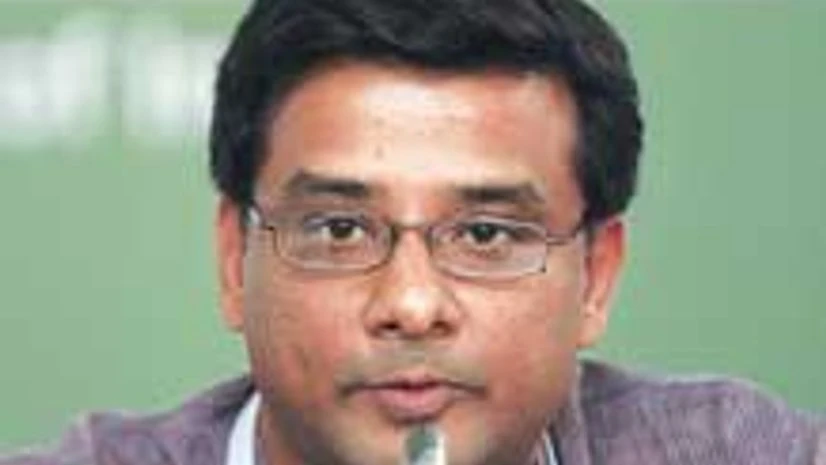A secret report of the Intelligence Bureau (IB) has blamed non-government organisations (NGOs) for impacting the country's economic growth. It has not only raised questions about funding of these NGOs but has built an atmosphere of suspicion. Greenpeace India Executive Director Samit Aich, in an interview with Jyoti Mukul, debunks the IB claims and questions the timing of report's leakage. Edited excerpts:
How would you define Greenpeace's activities in India, considering the organisation is viewed with a lot of suspicion?
We are in India for the past 12-13 years and have a strong value system. We follow the principle of financial independence, where we do not take money from corporations, government and quasi-government bodies. Since inception, we have some 300,000 financial donors. The model is to have small sums of money from a large number of donors, in contrast to NGOs which take large sums from a small number of donors.
More From This Section
Isn't your way of protest very aggressive?
We believe in power to the people through our campaigning and we don't simply campaign by just negotiating with our stakeholders within the confines of board rooms or closed door meetings. We are extremely strategic in the way we work with the limited resources we have. The issues we focus on in India include primarily those relating to climate change and energy and sustainable agriculture campaigns. The Mahan coal block (in MP) is iconic of what is wrong with energy planning in our country. We need to change the policy paradigm to make it equitable and clean.
Foreign funding for organisations like yours have come in for questioning. Are there any Foreign Contribution Regulatory Act violations (FCRA)? How do you defend it?
It is a very antagonist way of criticising. I see no reason that when foreign direction investment is welcomed in everything, including sectors like defence, retail and media, NGOs getting foreign funds should be viewed with suspicion. Foreign funding becomes a problem for NGOs because they challenge the powers that be. We fight the same issues across many countries. We have anti-coal campaigns in the US, the UK, China, Indonesia and many other countries. Internationally, that is our strategic approach and we work in unison. We get support from local people anywhere we campaign. We have some three million cyber activists, mobile activists and volunteers supporting us in India.
An IB report has blamed foreign-funded NGOs for impacting the country's growth. Have you heard from the government on this?
First, how did the IB report that targets various NGOs get leaked? It is a branded attack on Greenpeace India. As far as our organisation is concerned, we follow the highest norms of ethics and clarity. Our audited figures go to the home ministry regularly. Going by the media reporting, the IB report is shoddy in that it claims three per cent of GDP is impacted. We should look at the larger picture of NGOs. If any civil society member or any NGO is doing illegal work then it should be stopped. We have a fundamental right to speech and action. This right has been constituted by the Constitution. The government has all the machinery to stop any illegal activity that's proven. We are being targeted because we raise pertinent questions against corporates and the government. They want to present a warped and distorted narrative of development and we have the right to an alternative vision for our country and planet - that which is clean, equitable and just.
Wouldn't you agree that by stalling infrastructure projects, Greenpeace is seen as anti-development?
In Mahan, for instance, Essar and Hindalco are saying they have invested Rs 4,000-5,000 crore. They are giving this as fait accompli but there is something fundamentally wrong with the way such investments are made. Despite all the natural resources, there are 300 million people in this country who do not have electricity.
When we go after infrastructure and energy, it disrupts the party between corporates and other stakeholders. Today, you are staring at stranded projects but solutions are available. But, is there anybody who will say coal is not problematic for environment? You have to move away from coal.
Besides, there is the Forest Rights Act granted to the people through the country's legal system. It allows people to decide what they want to do with their land. Assets that become a burden and are bad for environment should not be created. And it's also bad for the economy.
Environment is not the sole proprietorship of the government. What is environment without people and the natural ecosystem that includes the whole flora and fauna? It is difficult to put boundaries in ecosystem.
Do you think with the Narendra Modi-led government at the Centre, it would become difficult for NGOs and the civil society to operate?
The government is new. As a citizen, I would want the government to ensure the wellbeing of all the people and ecosystems. We have not heard anything formally from the government, although we have written formally to the home minister and the ministry of home affairs. If we put in the trend map in place, then the decision on increasing the height of the Narmada dam and the IB report leak happened at the same time. There could be a possible linkage and that also has been the sense from other activists like the Naramada Bachao Andolan activists and Medha Patkar who have been working for this cause for decades. It was an attempt at public slander to discredit the civil society as a whole which is seen as a threat. Malicious allegations are made. But we won't be cowed down. The current government wants to lay emphasis on renewable energy and aren't we saying the same thing?

)
